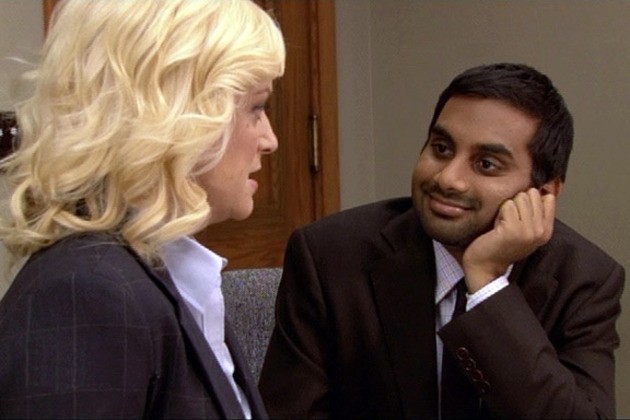I Don’t Know What I Want to Be When I Grow Up
Considering the warnings about different career paths

One night, when my father was giving my teammate, Jason, and me a ride from our practice, he asked what we wanted to be when we grew up. “A soccer player,” I said.
“I want to be a chemical engineer,” said Jason, who is the worst.
My father did everything he could to stifle his laughter. It was a way to ground me, I think, laughing at me that way, although I may have been offended at the time. He still talks about that ride.
But I loved soccer. I meant what I said and would continue to mean it for years. I was composed of memories of the game: watching my brother run after the ball from our front steps, dribbling barefoot through wet grass on rainy summer afternoons. When I slept I had a reoccurring dream of battling Ronaldinho in the kitchen. I couldn’t fathom a future in which I was spending time doing anything else.
“Soccer players do pretty well financially,” I told my father.
“Surprisingly unwell,” he replied. Goddammit, he was right, at least about players in the United States. In 2005, a third were making less than $20,000 a year.
In high school, my naivety did not expire; it transformed. I read a book by Michael Chabon and remember being struck by the lyricism of his prose, his masterful wordplay, his uncanny ability to make superfluous descriptions indispensable. I remember laughing at loud at lines that weren’t supposed to be funny, just because they resonated with me so deeply. And I remember the desire to emulate him, to articulate underlying truths of existence.
I began to read more. I began to journal. I applied myself in my English classes. I wrote a story about Snack Mix, a staple of our school cafeteria. I wrote another in defense Adam Sandler as an evolving artist. By the time I was bound for college, I dreamt of writing professionally.
I considered majoring in English. Fourteen people politely advised against it.
“Writers do pretty well,” I told my teacher.
“When they make it,” she said.
I considered majoring in psychology but remembered both my parents were psychologists. I read an article about the corruption of private prisons and considered studying law. I considered political science in the middle of season two of “Parks and Recreation,” and then business for about one minute right after I saw Michael Scott do a “Princess Bride” impression in “The Office.” I considered not basing my considerations off of television shows.
Podcasts, though, were better. I started listening to Radiolab while I worked at a place called Longwood Gardens pinching flowers off begonias and shearing the tops of coleuses. I remember listening to an episode about synesthesia, another about about the brain’s role in biking across the country without stopping to sleep, a third about “neurolaw,” or the dystopian concept of dissociating someone from their criminality in the case that they’ve had brain surgery. Amazed by these findings, I declared my major: neuroscience.
The magic was short-lived. The following summer I worked in a lab researching optogenetics, which involved shining light into implanted rat brains to enact behavioral changes. The work was undeniably fascinating, but I did not love the research process, nor how we used the animals. Sometimes they didn’t make it out of surgery.
“I wouldn’t name them,” my boss told me. “You don’t want to get too attached.”
D3 and B2 both died on me. I considered changing my major.
I considered the financial implications of different options. Some paths would necessitate acquiring a degree beyond a Bachelor’s. There are neuroscience, psychology, and English Ph.D. programs that pay their graduate students rather than have them pay tuition, especially those who teach or TA on the side.
“But there’s a surplus of post-docs looking for work,” my advisor told me. “Doctorates don’t always lead to a doctorate-level positions.”
I considered programs with expensive tuitions. Law school, for example, could cost around $40,000 a year. Medical school, another option students with backgrounds in neuroscience often pursue, could come out to around $50,000 a year or more. I understood the ensuing high paying positions with these degrees made loan payments possible. But fourteen people informed me that like the other fields, there is a surplus of lawyers looking for work. And apparently medical doctors are not making what they used to. Affording loan payments is less straightforward than it has been in the past.
This incessant onslaught of discouragement left me feeling stuck and directionless. I considered dropping everything and becoming ordained.
“Priests do pretty well,” I told my father.
“We’re Jewish,” he reminded me.
He’s right. They’re all right. But I’ve come to realize that no one is trying to deter me; they’re trying to inform me. It is hard to find a job these days. Graduate school doesn’t automatically mean a position in academia. Law school doesn’t mean you’ll be hired as a lawyer. Candidates have to be exceptional to qualify for a position.
Acknowledging these realities is important, but letting them inhibit me is more naive than being certain I’d one day play professional soccer. So I’ll strive for the balance we all want: a job I enjoy and a job that pays, and I’ll be prepared for the inevitable trials along the way.
Yoni Blumberg is an Awl network intern this summer, and a senior at the University of Delaware
Support The Billfold
The Billfold continues to exist thanks to support from our readers. Help us continue to do our work by making a monthly pledge on Patreon or a one-time-only contribution through PayPal.
Comments